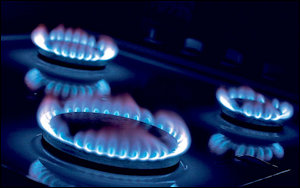 The average monthly energy bill per household runs about $284 in Virginia, lower than the national average, according to our list-compiling friends at WalletHub. The Old Dominion ranks 20th lowest of the 50 states and Washington, D.C.. Connecticut households pay the most per month, $404, while residents of the state of Washington pay the least, $218 per month.
The average monthly energy bill per household runs about $284 in Virginia, lower than the national average, according to our list-compiling friends at WalletHub. The Old Dominion ranks 20th lowest of the 50 states and Washington, D.C.. Connecticut households pay the most per month, $404, while residents of the state of Washington pay the least, $218 per month.
WalletHub ranked the states in each of four categories — electricity, natural gas, motor fuel and home heating oil — by multiplying the average monthly consumption times the average monthly price.
Virginia performed best in the areas of home heating oil (13th lowest) and electricity (14th lowest) and the worst in the areas of natural gas (32nd lowest) and motor fuel (35th).
Bacon’s bottom line: The WalletHub ranking provides fuel for thought: How could public policy in Virginia do a better job of reducing energy costs for its citizens? Are we doing something right when it comes to electricity regulation, where we score well, or are we just lucky to live in a moderate climate? Does restricted pipeline capacity push up natural gas prices? And why would our gasoline prices be higher than elsewhere?
One needs to be especially careful comparing electricity and heating oil rates, which vary widely by climate. Massachusetts households, for example, have lower average electric bills than Virginia. Does that mean Massachusetts residents enjoy lower rates or pursue energy efficiency more aggressively? Not necessarily. Massachusetts households are far more likely to heat their homes with heating oil (spending an average of $78 a month) than Virginians ($10 a month), substituting heating oil for heat pumps and electricity. Conversely, because Massachusetts is cooler in the summer, residents need less air conditioning than Virginians, and they use less electricity in summer as a result. But Bay Staters spend more on electricity and heating oil combined ($193 per month) than Virginians ($151 per month).
Another factor not considered here: energy efficiency. Some states have invested heavily in energy efficiency, while others have not — Virginia is frequently criticized on that score. Thus, despite higher electric rates, New Jersey households spend only pennies more on average for their electric bills than Virginians. On the other hand, money spent on energy efficiency is also a capital expense, even if it doesn’t show up in the WalletHub scoring.
The picture gets complicated quickly, so the numbers presented here represent no more than a starting point to think about energy bills.
— JAB


